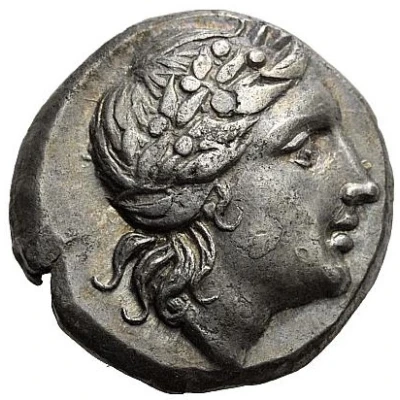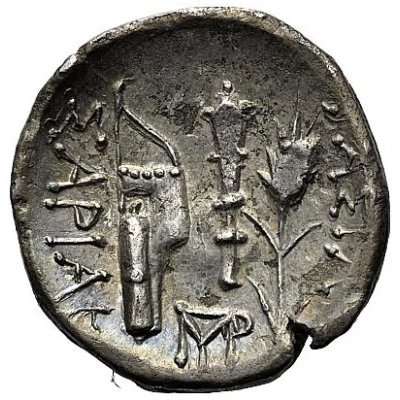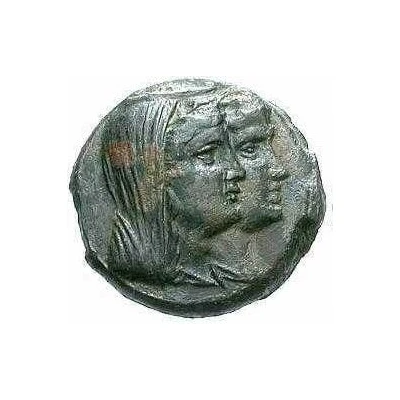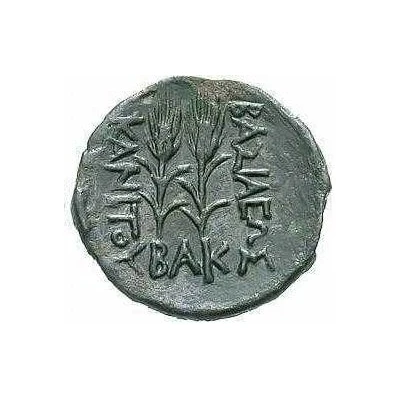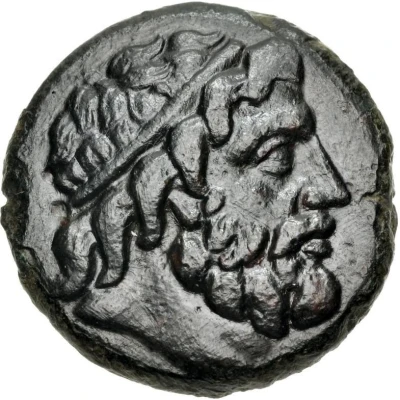
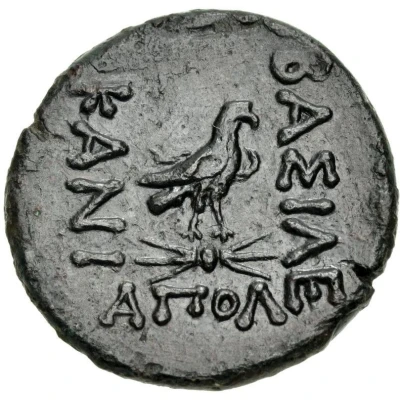

© Classical Numismatic Group, Inc.
Tetrachalkon - Kanites 210 BC - 195 BC
| Bronze | 8.92 g | 23 mm |
| Issuer | Kings of Skythia |
|---|---|
| King | Kanites (210-195 BC) |
| Type | Standard circulation coin |
| Years | 210 BC - 195 BC |
| Composition | Bronze |
| Weight | 8.92 g |
| Diameter | 23 mm |
| Shape | Round (irregular) |
| Technique | Hammered |
| Orientation | Variable alignment ↺ |
| Demonetized | Yes |
| Updated | 2024-10-10 |
| Numista | N#427474 |
|---|---|
| Rarity index | 100% |
Reverse
Eagle standing right on thunderbolt.
Script: Greek
Lettering:
ΒΑΣΙΛΕ
ΚΑΝΙ
ΑΠΟΛ
Comment
Draganov, Skythian 183–9; Peykov G0600.
Interesting fact
The Tetrachalkon - Kanites coin was used as a form of currency by the ancient Scythians, a nomadic people who lived in the steppes of Eurasia from the 9th century BC to the 3rd century AD. The coin features an image of a horseman on one side and a Greek legend on the other, indicating the influence of Greek culture on the Scythians. Despite being made of bronze, the coin was valued at a relatively high amount, reflecting the importance of trade and commerce in the Scythian Empire.
